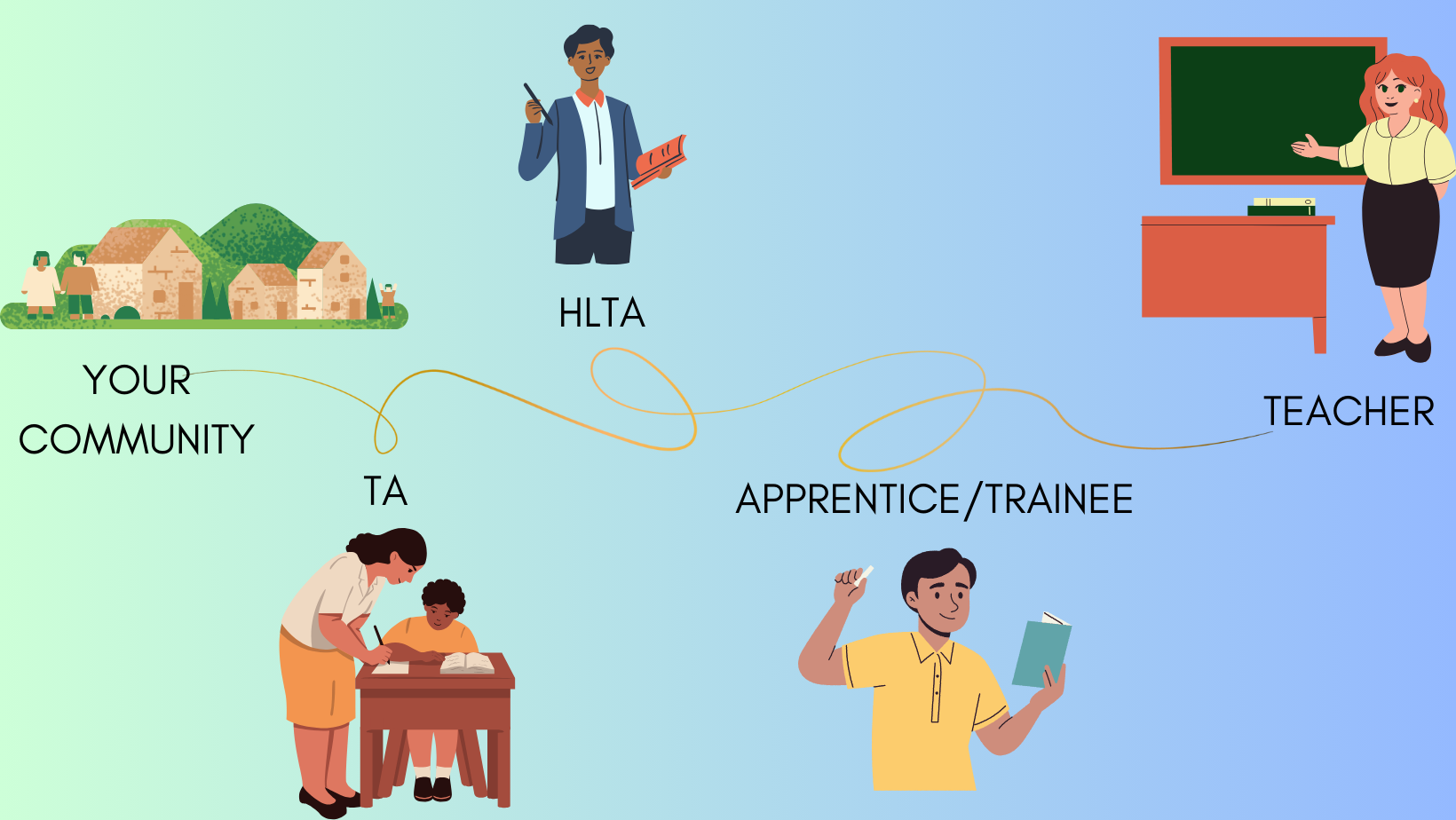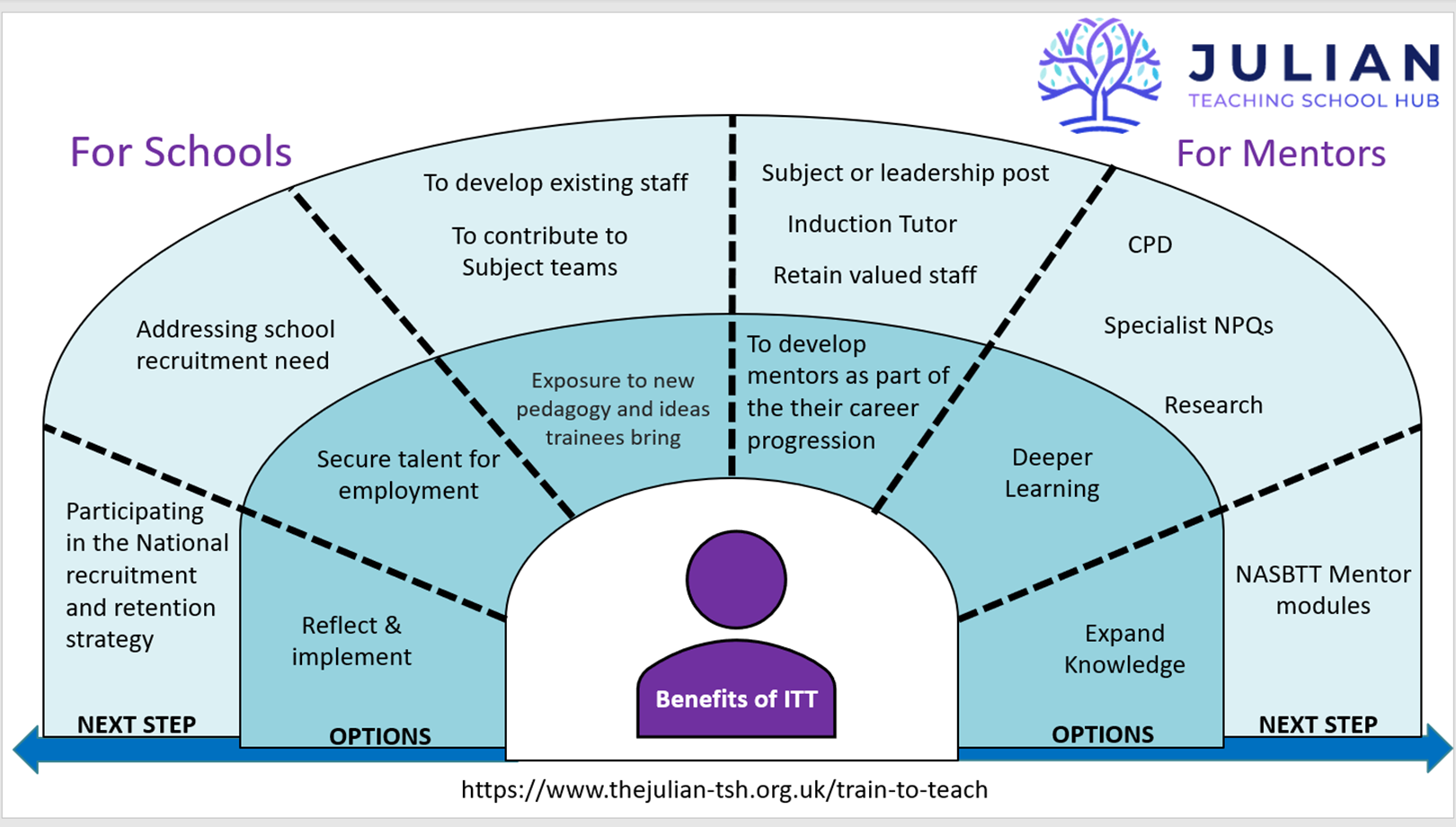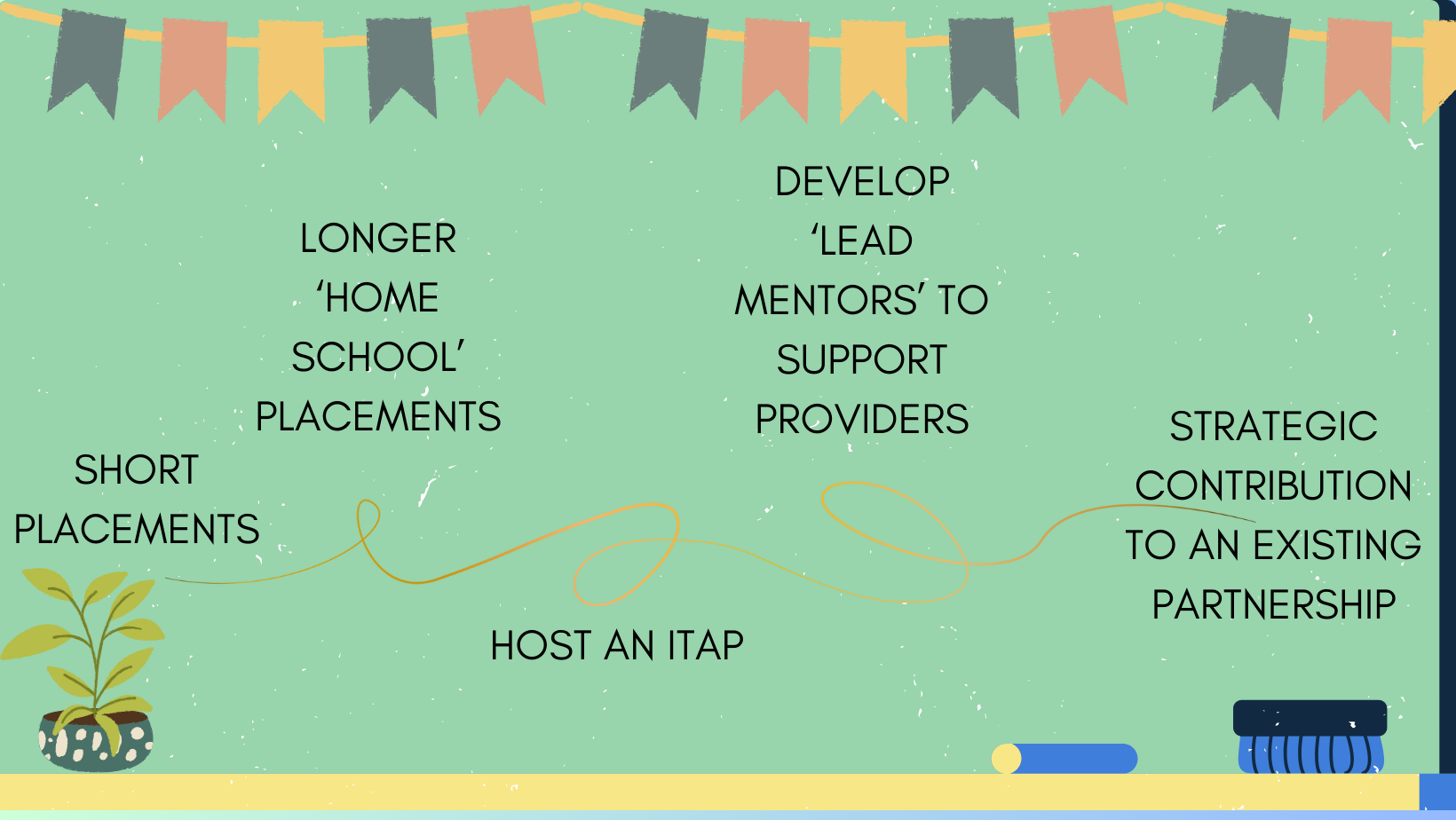Information for schools
How can schools get involved in Initial Teacher Training (ITT)?
By supporting ITT, you have the chance to 'grow your own': by offering placements to trainee teachers, your school has the opportunity to support the development of your own workforce - check out our case study, Claudia, to find out how this can work.
You might already know your next trainee: our partner NTTC supports teaching apprenticeships, which are ideal for promising Teaching Assistants (TAs) or Higher Level Teaching Assistants (HLTAs).

Immediate advantages of hosting an ITT trainee include:
- Trainees are supernumerary: if you host a school-centred initial teacher training (SCITT) trainee, you have an extra pair of hands, straight away from September.
- Trainees work alongside teachers, team teaching and working with individuals or groups of pupils while they develop their practice.
- As trainees' confidence and ability grow, they can quickly progress to lead whole-class teaching.
- Trainees have the potential to rapidly become valued members of the school team.
Longer term advantages include:
- The opportunity to work with talented trainee teachers who may be a strong fit for future teaching vacancies in your school.
- Professional development for teaching staff who provide mentoring and support for trainee teachers.
- Access to the latest research, practice, and innovation on teaching and support for children and young people.
- Access to support from ITT providers and their wider networks, including teaching school hubs.

Why should I host a trainee now?
- The Core Content Framework (CCF) - the basis of all ITT curricula - has a clear and coherent evidence base and, in partnership with the Early Career Framework (ECF), establishes an entitlement to a three year structured package of support for future generations of teachers.
- The recent ITT provider reaccreditation process has ensured that all accredited providers have designed new evidence-informed curricula.
- Revised mentor expectations result in significantly upskilled existing school staff.
- Support to build mentor pathways into your career mapping.
What's the benefit for mentors?
Anecdotal evidence tells us that mentoring a trainee in school gives experienced teachers a fresh look at their own practice, which leads to an 'upping of their game' in the classroom. Evaluating one's own practice in order to explain it to a novice can be transformative - and the opportunity to share knowledge and expertise with the next generation of teachers can improve morale and self-worth, and in turn teacher retention:
- Enhanced professional learning and the opportunity to develop your professional skills.
- Enhanced knowledge and understanding of the latest evidence on what makes good teaching.
- Opportunities for CPD from providers and within the school/Trust network, leading to enhanced career development opportunities.
What support will the ITT mentor get?
Your ITT provider will allocate a lead mentor to support the delivery of their ITT course. The role of a lead mentor is to:
- Support and train school-based mentors
- Supervise school-based mentors
- Make sure all trainees are receiving sufficient mentoring and support during their placements
- Check placements align with their trainee curriculum and the ITT core content framework.
What if we can't spare the classroom time for a mentor? Is there another way to get involved?
Yes!

What's an ITaP?
Intensive training and practice (ITaP) will be a key element of all initial teacher training in England from 2024. Intensive training and practice focuses on specific pivotal areas, for example setting up behaviour routines, subject-specific focus, or effective interventions for pupils with special educational needs and disabilities. Trainees will cover 3 to 5 different themes which will combine to a minimum of 20 days spent on ITaPs.
ITT providers will design and deliver the ITaP, but may ask your school to host part or all of it - this is a great opportunity to show off your school to colleagues who will be job-hunting in the near future, and to make useful links with trainees and providers. Consider what your school is expert in: could you use this expertise to support an ITaP? Your ITT provider will be able to pay your school to cover costs.
Offering to host an ITaP is not the same as hosting a placement - you can do one without the other. If you'd like to be involved, get in touch.
What's a lead mentor?
Lead mentors are individuals with an advanced level of ITT knowledge and expertise who play a lead role in curriculum design and implementation, mentor training, and ITaPs. They play a key role in the training, support, and supervision of in-school mentors. Lead mentors are employed to fulfil this role by ITT providers.
How can I find out more?
If you'd like more information on how to get involved, you can contact us. We'll also be updating these pages frequently.

